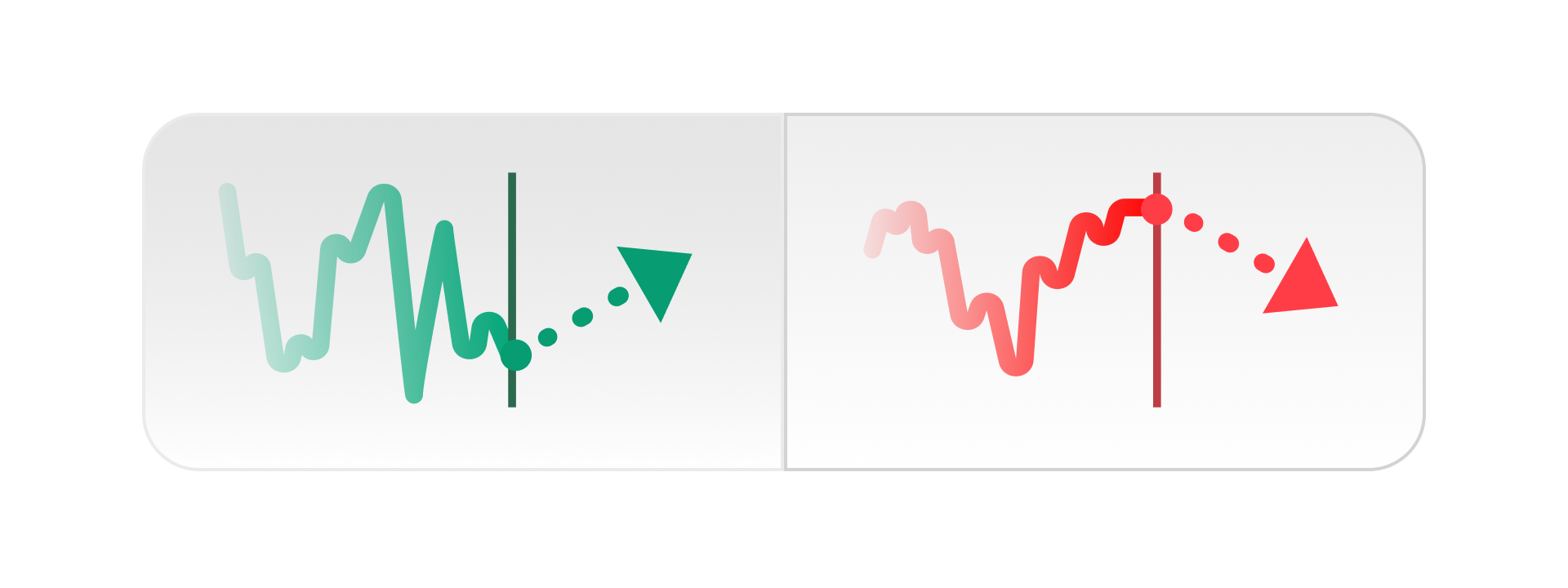Why do forex traders go short?
As we’ve mentioned previously, one of the distinguishing characteristics of trading spot forex over stocks, for example, is that you can sell currency pairs, without ever having bought or borrowed them. But why do spot forex traders go short in the first place?
Trading both rising and falling markets
The ability to short currencies allows traders to remain active, even if the market is trending downwards. This means that traders aren’t limited to simply buying a pair when they think the base currency will rise in value. They can also sell the pair if they expect the quote currency to appreciate.

The fact that, at any given time, traders are both buying and selling currency pairs contributes to the forex market being one of the most liquid in the world, and potentially one of the riskiest.
Although the ability to take short positions provides forex traders with additional opportunities, it also comes with a certain level of risk and should be managed correctly.
Hedging to manage risk
Another reason traders often go short on forex pairs is to hedge their positions. What is hedging? It’s a strategy some traders use to manage their risk in the event that the markets move against them.

Say, for example, you already have long positions open on various European stocks. If you also have a forex trading account denominated in U.S. dollars, you may want to hedge your trades by shorting EURUSD.
Why? Well, when buying foreign stocks, you take on a degree of risk due to your exposure to an asset denominated in a foreign currency. In this case, any downward movement in the euro could negatively affect the value of your stock trades. By shorting EURUSD – selling euros and buying dollars – any potential losses from one market would be offset by the profits from the other.
